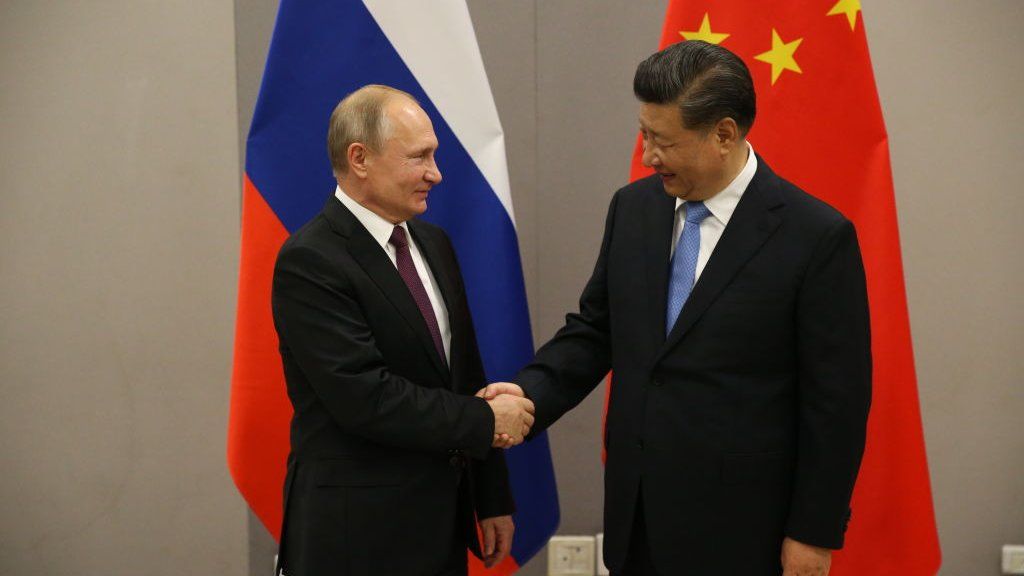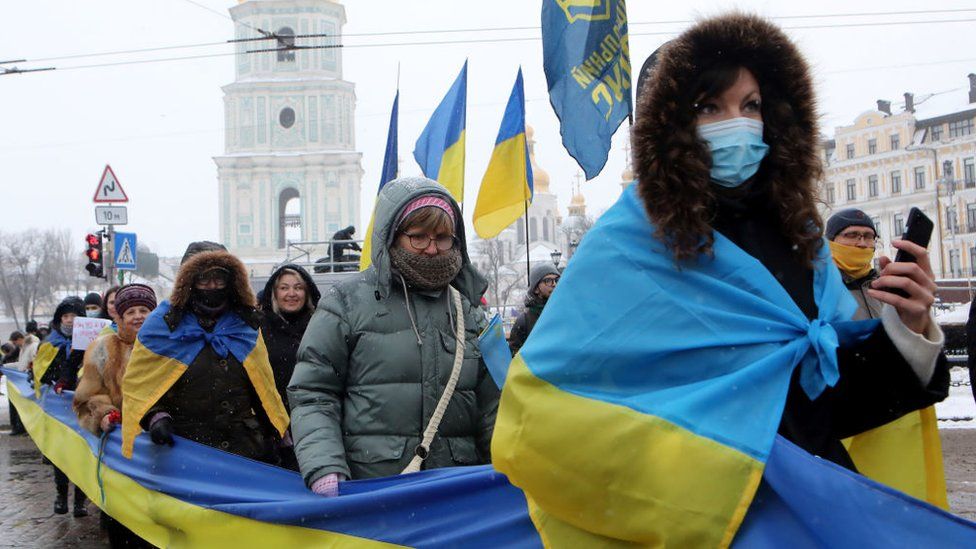Best Friends With Territorial Ambitions
"Friendship between the two states has no limits, there are no 'forbidden' areas of co-operation.""The advancement of U.S. plans to develop global missile defence and deploy its elements in various regions of the world, combined with capacity building of high-precision non-nuclear weapons for disarming strikes, and other strategic objections, is concerning].""Any attempts to limit [our] sovereign right to regulate national segments of the Internet and ensure their security are unacceptable."Russia/China joint statement
 |
| Mr Xi has memorably called Mr Putin his "best friend" Getty Images |
"[The declaration is] the most explicit articulation of the 'making the world safe for dictatorships' strategy.""It is an historic point because they both feel cornered and they feel their moment has arrived to state their vision of the world and promote it aggressively."Jonathan Eyal, Royal United Services Institute, London, U.K.
Although Russia and China have faced hostility, even conflict at some time in their history, their estrangement has undergone a warming period in the last several decades, and now is being consolidated into a 'best friends' on the international scene scenario. They have, after all, much in common, aside from a contiguous border. Both are dictatorships sharing a like ideology and commitment, both are extremely territorial-aggressive, and both view the United States as their shared nemesis.
So their warm relationship of late has grown to develop a deep strategic partnership, one that will challenge, they believe, the malign global influence of the United States. President Xi Jinping had the honour of hosting President Vladimir Putin in Beijing on the opening day of the International Olympics 2022 Winter Games. Most fitting, after the Sochi Winter Games in Russia in 2014. Now it's China's turn to showcase clean winter air after the lung-strangling Summer Games in 2008.
Their joint statement focused on plans to collaborate in space, climate change, artificial intelligence and Internet content control. The most detailed, assertive statement to date outlining Russian and Chinese resolve to work amicably together to build a new international order. Effectively sweeping the sole world-power rug out from under the unsteady feet of the United States of America.
 |
| The West has warned of further sanctions on Russia if it invades Ukraine Getty Images |
In the process a new agreement was signed for Russia to provide China with gas. An alert to Europe that if it persists in its collegial agreement with the U.S. and NATO in defying Russian overtures to Ukraine to return to the Soviet model fold, the energy they so desperately rely on Russia to provide can go elsewhere. It's a deal that the Europeans will lose out on, while Russia can happily divert its energy elsewhere, offsetting the effect of the conflict-inspired sanctions.
In this friendship made in communist heaven, Russia expressed its support for China's insistence that Taiwan remains an inalienable part of China's geography. And China supported Russia entirely in calling on NATO to end its interference in Russian affairs re-embracing Ukraine as a fundamental and historical part of Russia's heart. Both turned thumbs down on the AUKUS agreement between Australia, Britain and the U.S. as a danger impelling a regional arms race.
Hyperbole and hypocrisy fast and thick.
It's debatable how long that firm friendship will last before territorial aggression once again raises its ugly head. This time between Russia and China. Over Siberia. Russia's vast geography, the largest in the world is sparsely inhabited in the cold northern regions, and Han Chinese have steadily moved in over the decades. China, a much smaller geography with a huge population needs more room. Will Russia be prepared to move over and transfer some of that unused geography to China?
 |
| Joe Burgess/The New York Times |
Labels: China/Taiwan, NATO, Russia/Ukraine, United States

<< Home